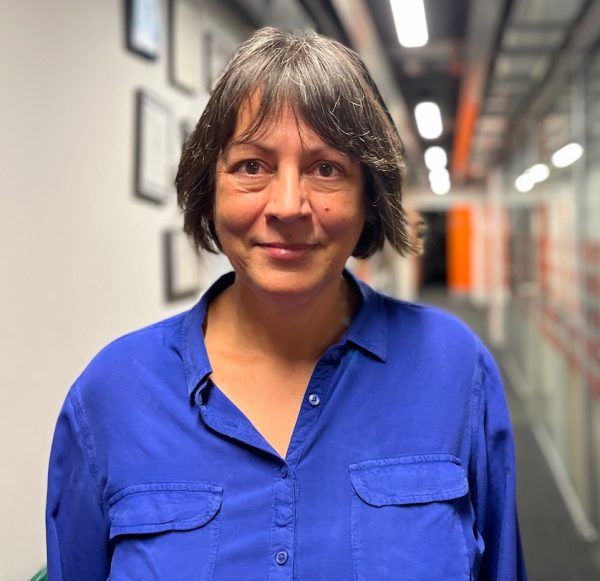Keynote Speakers
Professor Yvonne Rogers (University College London, UK)

Human-Centred Learning Tools: Empowering vs Analysing Students?
There has been much written recently about how the new generation of Large Language Models (LLMs), such as ChatGPT (developed by OpenAI), can be used by students to write their essays. Over the last few months, millions of people have used ChatGPT to to write their essays, reports, code, poems and so on. When I asked it to write some feedback that I could give for a graduate student report I was impressed by its fluid style and use of praise - almost as good and personalized as I could! Many people are worried that this new way of using AI will encourage students and teachers to use it to do their writing on behalf of them. However, I disagree. Rather than being fearful of it turning us all into cheats, we should embrace it for what it offers – and rethink our assignments and ways of providing feedback to students. In so doing we can all learn to write better – be it generating and creating or assessing and providing feedback. Framing the new generation of AI as learning tools rather than as analytic tools will enable all sorts of new possibilities for students (and teachers) to learn. In my talk I will discuss the role HCI can play in helping to turn AI into learning tools that can empower us.
Yvonne Rogers is the director of the Interaction Centre at UCL (UCLIC), deputy head of department for Computer Science and a Professor of Interaction Design. Her research is in the areas of human-computer interaction, ubiquitous computing and interaction design. Her current research focuses on how human behaviour is being impacted and augmented through the design and adoption of new technologies. She is particularly interested in how human-centred applications of AI can be developed that benefit society. Central to her work is a critical stance towards how visions, theories and frameworks shape the fields of HCI, cognitive science and ubiquitous computing. She been instrumental in promulgating new theories (e.g., external cognition), alternative methodologies (e.g., in the wild studies) and far-reaching research agendas (e.g., “Being Human” manifesto) and has pioneered an approach to innovation and ubiquitous learning. In 2022 she was awarded the ACM SIGCHI Lifetime Achievement Research Award and was elected as a fellow of the Royal Society. Other awards include the Royal Society Robin Milner Medal (2021) and a MRC Suffrage and Science Award (2020) for being one of the leading women in mathematics and computing. She was also awarded a chair of excellence from the University of Bremen (2020-2024).
Professor Ken Koedinger (Carnegie Mellon University, USA)

Learning Analytics Toward Better, More Equitable Learning
One path toward this year's conference theme of trustworthy learning analytics, is to test whether insights from learning analytics produce course changes that demonstrably enhance student learning. I refer to such demonstrations as close-the-loop experiments because they help complete a cycle from using course data to produce a better predictive model to demonstrating improved learning in that course. Better predictions are great, but we must resist the temptation to declare victory at this point. Better predictions are not yet trustworthy because they may not have causal power to improve learning. My talk will review two close-the-loop stories: one following up on "doer effect" predictions we reported in LAK in 2016 and another following up on recent striking findings of how surprisingly similar are students rates of learning in well-designed online practice environments. Results of close-the-loop experiments provide general implications for how to produce not only better learning, but more equitable learning.
Ken Koedinger is the Hillman Professor of Computer Science at Carnegie Mellon with training in Psychology (PhD), Computer Science (MS), and Mathematics (BS) and some experience teaching high school geometry. He explores how people think and learn by developing and studying technology-enhanced learning. He directs LearnLab (learnlab.org), which provides the world’s largest educational technology data sharing resource (learnlab.org/DataShop) as well as learning analytics sharing (learnsphere.org). LearnLab provides educational resources for improving data-driven learning engineering including the Masters of Educational Technology and Applied Learning Sciences (METALS) that Koedinger started and continues to direct. LearnLab builds on the past success of Cognitive Tutors, an approach to online personalized tutoring that is in use in thousands of schools and has been repeatedly demonstrated to increase student achievement, for example, doubling what algebra students learn in a school year. He was a founder of Carnegie Learning, Inc. (carnegielearning.com) that has brought Cognitive Tutor based courses to millions of students since it was formed in 1998. In 2017, he received the Hillman Chair and in 2018, he was recognized as a fellow of Cognitive Science. He recently served as a president of the International Educational Data Mining Society. Dr. Koedinger has authored over 300 research papers and some 60 successful grant proposals.
